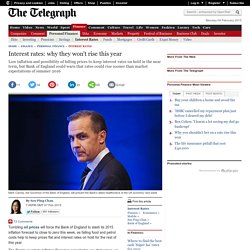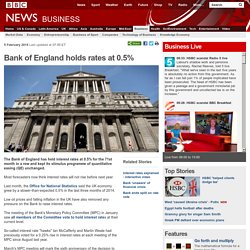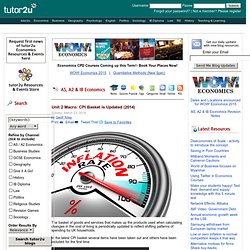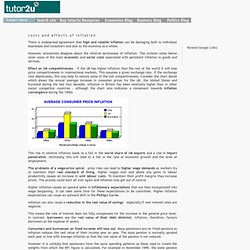

Komal
Interest rates: why they won't rise this year. The Centre for Economics and Business Research (CEBR) believes Britain will briefly enter deflation in March, when prices are expected to fall by 0.3pc.

However, the Governor has also said that the "oil dividend" could be larger than analysts currently believe. Mr Carney has described the decline in prices as "unambiguously positive" for the UK, and most estimates suggest the fall will boost UK growth by around 0.5 percentage points. Last month, he noted that the Monetary Policy Committee (MPC) that sets interest rates recognised that wages were picking up, with average weekly earnings in the private sector already growing by more than 2pc. The Bank will publish its first open letter to Chancellor George Osborne this week explaining why inflation, which stood at 0.5pc in December, has fallen by more than 1 percentage point below the Bank's 2pc target. It is likely to say that the nine members of the MPC will "look through" the recent fall in oil prices. Bank of England holds rates at 0.5%
5 February 2015Last updated at 07:55 ET The Bank of England has held interest rates at 0.5% for the 71st month in a row and kept its stimulus programme of quantitative easing (QE) unchanged.

Most forecasters now think interest rates will not rise before next year. Last month, the Office for National Statistics said the UK economy grew by a slower-than-expected 0.5% in the last three months of 2014. Low oil prices and falling inflation in the UK have also removed any pressure on the Bank to raise interest rates.
The meeting of the Bank's Monetary Policy Committee (MPC) in January saw all members of the Committee vote to hold interest rates at their current level. So-called interest rate "hawks" Ian McCafferty and Martin Weale had previously voted for a 0.25% rise in interest rates at each meeting of the MPC since August last year. March's MPC meeting will mark the sixth anniversary of the decision to cut interest rates to 0.5%. Handout.pdf. The circular flow model notes. Unit 2 Macro: CPI Basket is Updated (2014) Economics CPD Courses Coming up this Term!

- Book Your Places Now! WOW! Economics 2015 | Quantitative Methods (New Spec) Sunday, March 23, 2014 The basket of goods and services that makes up the products used when calculating changes in the cost of living is periodically updated to reflect shifting patterns of spending by UK households. In the latest CPI basket several items have been taken out and others have been included for the first time Read more here: According to the ONS, "currently, around 180,000 separate price quotations are used every month in compiling the indices, covering around 700 representative consumer goods and services. New items in 2014: Flavoured milkFresh fruit snacking potHoneyMixer drinksCanvas fashion shoe/trainerWild bird seedFashion necklaceDVD rental/video on demand subscription services Items removed in 2014 Wallpaper pasteHardwood flooringGardeners’ feesAutomatic drive-through car washDVD recorderAfter school club chargesDVD rental internet subscription.
AS - Inflation. Tutor2u - Costs and Effects of Inflation. There is widespread agreement that high and volatile inflation can be damaging both to individual businesses and consumers and also to the economy as a whole.

However, economists disagree about the relative seriousness of inflation. The revision notes below cover some of the main economic and social costs associated with persistent inflation in goods and services. Effect on UK competitiveness - if the UK has higher inflation than the rest of the world it will lose price competitiveness in international markets. This assumes a given exchange rate. If the exchange rate depreciates, this may help to restore some of the lost competitiveness. This rise in relative inflation leads to a fall in the world share of UK exports and a rise in import penetration. The problems of a wage-price spiral – price rises can lead to higher wage demands as workers try to maintain their real standard of living. Consumers and businesses on fixed incomes will lose out. Anticipated and unanticipated inflation. Slump. Boom. Recession.
Recovery. Who Killed Economic Growth? AS - Economic growth. Circular Flow of Income - Macroeconomics. GDP and the circular flow of income and expenditures.